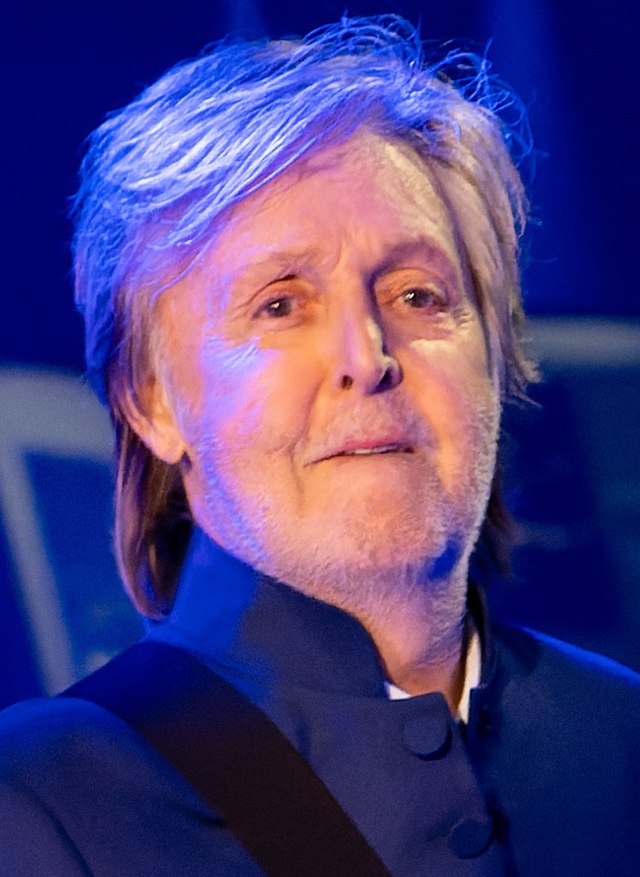Paul McCartney: “In Agony – Death Might Even Be Better”
The headlines would send shockwaves through the music world. A legend like Paul McCartney, one of the most iconic figures in music history, expressing such despair is difficult for many to comprehend. Yet, the depth of the human experience, even for someone as globally admired and successful as McCartney, can lead to moments of pain and reflection that reach even the darkest thoughts.
The comment attributed to McCartney—”Death might even be better”—would undoubtedly leave fans worldwide worried. But to understand the context, it’s essential to delve into the nuances of what such a statement might mean for a person of his stature and legacy.
A Life Under the Spotlight
Paul McCartney’s journey began in Liverpool as a young boy fascinated by music. His partnership with John Lennon in forming The Beatles forever changed the face of music. The Beatles were more than just a band; they became cultural icons, driving societal change and becoming symbols of the 1960s’ spirit of rebellion, love, and peace.
But with fame comes an intense, often relentless, spotlight. McCartney has spent over six decades under public scrutiny, navigating not just the adoration of millions but also the pressures that come with it. The burden of constantly producing art that matches or surpasses expectations, while living in a world that constantly compares his past and present work, would take a toll on anyone.
Despite his cheerful public persona, McCartney, like anyone, has experienced personal and emotional struggles. The death of his beloved first wife, Linda, in 1998, after a battle with cancer, was a devastating blow. Their relationship had been a cornerstone of his life, and her loss left him visibly shaken. In various interviews over the years, he’s hinted at the profound sadness he felt during that period, battling through grief while trying to remain productive and creative.
The Weight of Aging
Now in his 80s, McCartney is undoubtedly aware of his mortality. For someone who has lived such a vibrant, energetic life, the inevitability of age and its accompanying limitations can be difficult to accept. Aging strips away the vitality that once fueled tours, performances, and the joy of creating music. His once effortless ability to perform for hours on stage or to strum his guitar with youthful exuberance may be waning, despite his continued passion for music.
It’s not just physical aging that can weigh heavily but also the emotional toll. For someone who has lost close friends, including Lennon and George Harrison, and faced various personal losses, the loneliness that can accompany age might be overwhelming at times. The quiet after a performance, the reflection on friends who are no longer there, and the reality of life’s transience could lead to introspective moments, where despair might creep in.
The Search for Meaning
For someone who has accomplished nearly everything one could dream of, McCartney might be wrestling with the question: “What now?” Having already cemented his legacy as one of the greatest songwriters in history, won countless awards, and inspired multiple generations, what remains to be done? For many artists, the desire to continue creating and pushing boundaries never fades. But when one’s body and spirit no longer move as quickly as they used to, the frustration can be overwhelming.
Perhaps the agony McCartney alludes to is tied to a feeling of insignificance or redundancy in a world that seems to move forward without pause. It’s not uncommon for artists to question their worth once they’ve reached the peaks of their careers. The pressure to remain relevant, combined with the introspective nature of aging, might lead even someone as iconic as McCartney to experience moments of profound doubt and sadness.
A Desire for Rest?
It’s possible that McCartney’s statement reflects a longing for rest. His life has been a whirlwind of tours, recording sessions, media interviews, and public appearances. Even for someone who loves music as much as McCartney does, there must be a part of him that yearns for peace, for silence. The idea that “death might even be better” could simply reflect a desire for stillness, for an end to the perpetual motion that has defined his existence.
However, while such a statement might sound alarming, it doesn’t necessarily indicate a desire for life to end but perhaps a wish for the pain—whether physical, emotional, or existential—to subside. McCartney is a man who has given so much of himself to the world, and perhaps in moments of vulnerability, he feels the weight of it all.
The Power of Art in Healing
Despite the darkness such a statement implies, McCartney has always found solace in his music. Throughout his life, songwriting has been his refuge, a place where he can process his emotions and find clarity. Even in the face of grief or doubt, McCartney’s creative spirit has always led him back to music, the one constant in his life.
Though he might be feeling the weight of the years and the pain that comes with them, McCartney’s resilience and love for what he does will likely continue to guide him through the struggles. His fans, who have been there for him through his ups and downs, will undoubtedly offer their unwavering support, as they always have.
At the end of the day, Paul McCartney remains a human being, subject to the same fears, pains, and doubts that we all experience. But through it all, his music serves as a reminder that even in the darkest moments, there is always the possibility of hope.
